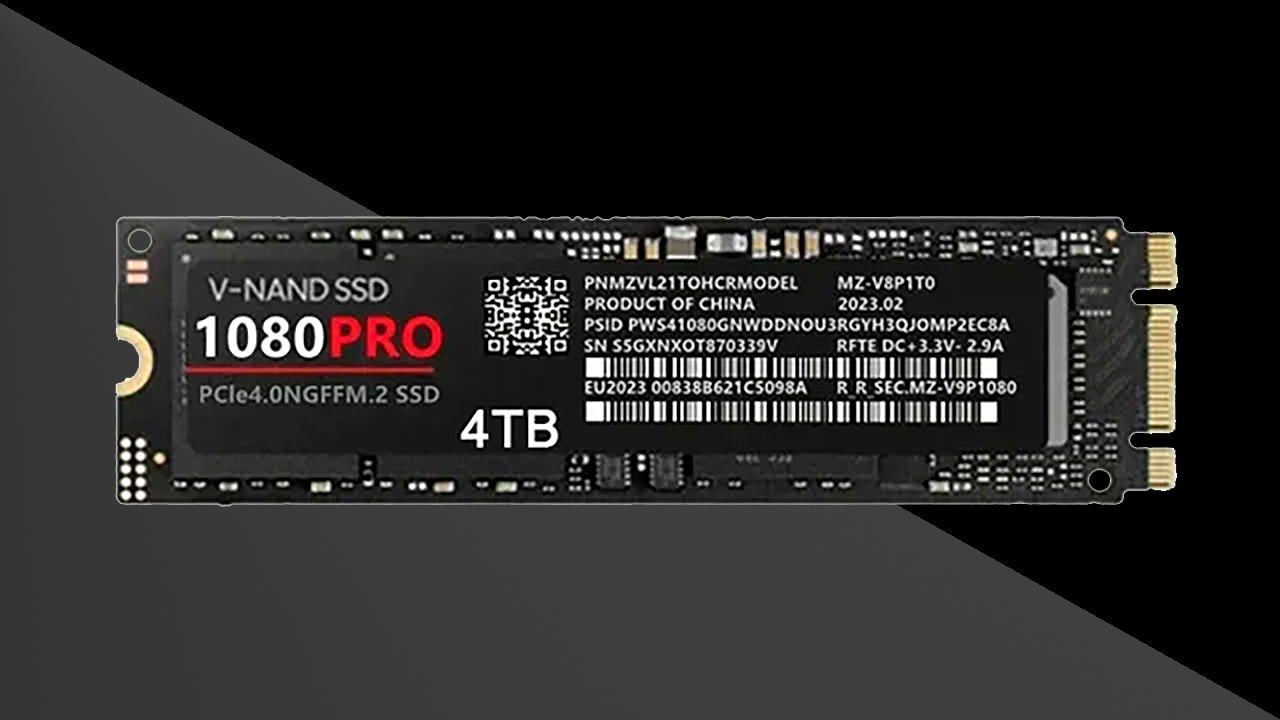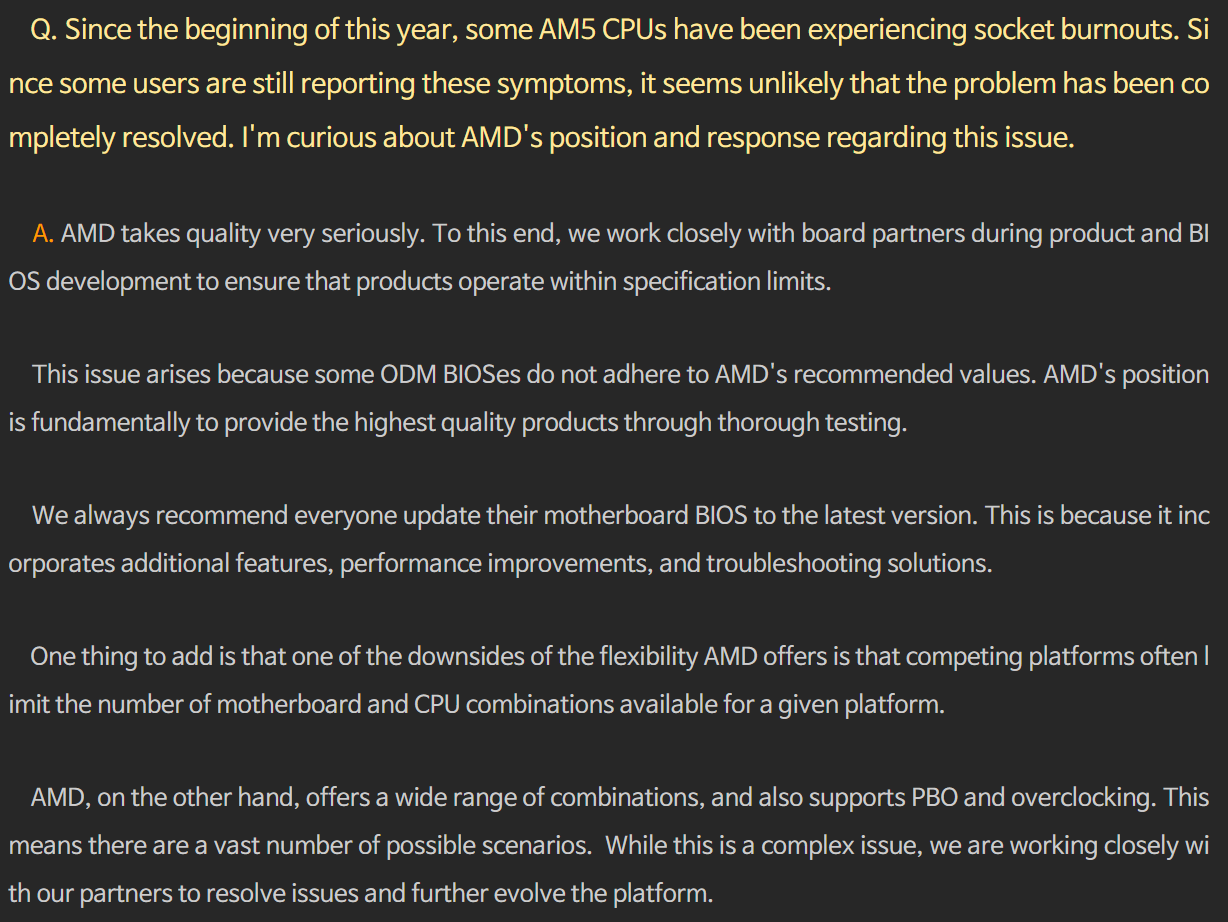
With advertised speeds up to 15.8 GB/s, the 1080 Pro would outperform the majority of the best SSDs on the market. Unfortunately, this is all false advertising, and Quasarzone has found that the 1080 Pro sometimes performs worse than a USB 2.0 pendrive.
You can find some legitimate deals on AliExpress, but most of the time, you’ll find obscure deals that are a waste of time and effort. This 1080 Pro SSD is a perfect example. If a 4TB NVMe with a $43.68 price tag isn’t enough to raise the red flags, then the advertised specifications should. The merchant promotes the 1080 Pro as a PCIe 4.0 drive, so there’s no chance the SSD will hit the outrageous sequential read and write speeds of up to 15.8 GB/s and 14.5 GB/s, respectively. Not even the fastest PCIe 5.0 drives — like the Crucial T705 2TB — can offer that kind of performance.
Given the popularity of Samsung SSDs, it’s not surprising that many Chinese factories tailor their bogus products to imitate Samsung’s designs. Although the AliExpress seller was careful not to include Samsung’s name in the listing or the marketing materials, it’s evident that the 1080 Pro aims to pose as a Samsung product to deceive less-experienced users. The 1080 Pro utilizes a model name that insinuates it is the successor to the popular 990 Pro mimics the SSD’s aesthetics.
1080 Pro Benchmarks
| SSD | ATTO Disk Benchmark (Read, 4MB) | ATTO Disk Benchmark (Write, 4MB) | CrystalDiskMark (Read, SEQ1M Q8T1) | CrystalDiskMark (Write, SEQ1M Q8T1) | Bandizip (Compression, 21GB) | Bandizip (Decompression, 21GB) | 100GB Single File Copy Test |
|---|---|---|---|---|---|---|---|
| Samsung 980 Pro 1TB | 6,420 MB/s | 4,610 MB/s | 6,863.56 MB/s | 4,947.35 MB/s | 64 seconds | 16 seconds | 32.79 seconds |
| 1080 Pro 4TB | 1,180 MB/s | 649 MB/s | 1261.04 MB/s | 674.07 MB/s | 301 seconds | 227 seconds | 1,815.46 seconds |
The 1080 Pro has a single NAND chip with TK1YL4BAAH2 marking. It’s a fake serial number that the factory laser-etched on the NAND, so it doesn’t return any results from a Google search. However, SSD monitoring and diagnostic software detects the flash as Intel-branded 96-layer (B27A) 3D TLC NAND. The Realtek RTS5765/66 controller supports PCIe 3.0 speeds and is a DRAM-less design. As expected, the 1080 Pro is far from offering the advertised performance, but Quasarzone tested the SSD for the laughs.
In synthetic benchmarks like ATTO Disk Benchmark and CrystalDiskMark, the Samsung 980 Pro delivered over 5X higher read performance and 7X higher write performance than the 1080 Pro. In Bandizip, the 980 Pro took 78% less time to compress 21GB of files than the 1080 Pro. As for decompression, the 980 Pro finished at 93% lower time. In a real-world usage test, such as copying a single 100GB file, the 980 Pro required a little over half a minute, while the 1080 Pro needed over half an hour.
The drive doesn’t provide 4TB of storage either, considering the single NAND chip. That means if you were to attempt to write that much data to the SSD, at some point it would either fail or start overwriting existing data.
Sadly, many fake Samsung SSDs are on the market, especially on Chinese e-commerce platforms. While we’ve seen previous attempts from counterfeiters to mimic the 990 Pro or 980 Pro, sellers are getting creative and inventing new models. Novice or less-informed consumers may fall for these SSD scams.
Given Samsung’s SSD nomenclature, the next SSD from the vendor, probably a PCIe 5.0 drive, could debut as the 1080 Pro. But for now, such an SSD doesn’t exist, so if you see one on the market, avoid it at all costs.






